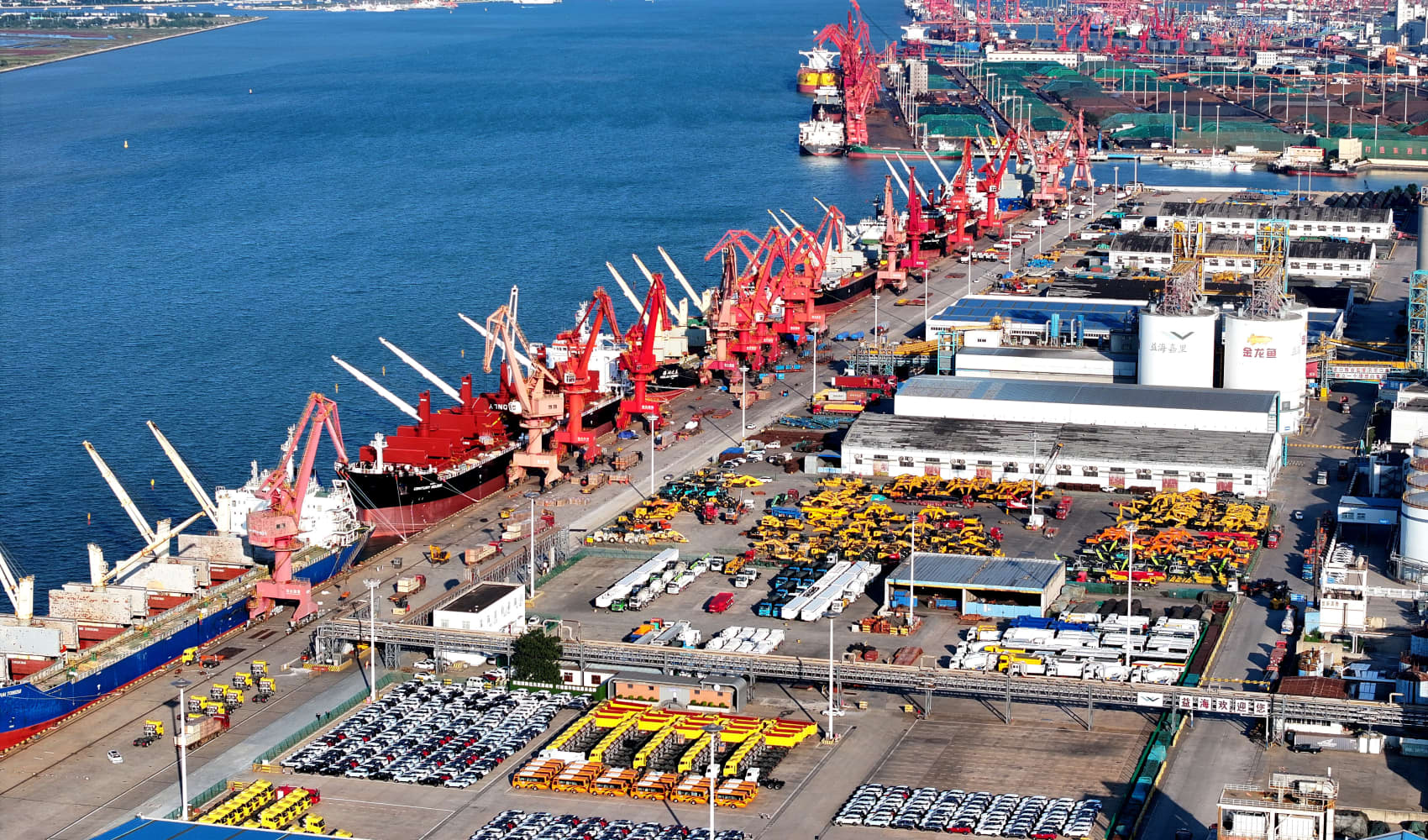
This is CNBC's live blog covering Asia-Pacific markets.
Asia-Pacific markets were mostly down Wednesday, following gains on Wall Street that saw the S&P 500 and the Dow Jones Industrial Average reach new intraday and closing records.
China's industrial profits dropped by 10% in October from a year ago, data showed Wednesday, in another sign that Beijing's recent stimulus measures have yet to reverse a slump in corporate earnings.
Traders in Asia also assessed inflation data out of Australia. Monthly consumer price index figures rose 2.1% in October year on year, missing the 2.3% expected by economists polled by Reuters.
The figure was in line with the rise in the month of September, and down significantly from the 5.6% registered in September 2023.
Hong Kong's Hang Seng index fell 0.15%, while mainland China's CSI 300 was down 0.2%.
Get Tri-state area news delivered to your inbox. Sign up for NBC New York's News Headlines newsletter.
Australia's S&P/ASX 200 was trading up 0.1%.
Money Report
Japan's Nikkei 225 fell 0.9%, while the broad-based Topix dropped 0.95%.
The South Korea'a blue-chip Kospi index was down 0.1%, while the small-cap Kosdaq fell 0.2%.
In the U.S. on Tuesday, the blue-chip Dow advanced 123.74 points, or 0.28%, to a record close of 44,860.31, while the S&P 500 added 0.57% to a record 6,021.63. The Nasdaq Composite jumped 0.63% to 19,174.30.
The strong performance came after U.S. President-elect Donald Trump called for a 25% tariff on products from Mexico and Canada, as well as an additional 10% levy on Chinese goods.
Trump has already said he would impose a tariff of up to 20% on all imports, and an additional duty of at least 60% on products from China.
According to one market analyst that spoke to CNBC, market participants appeared to look past Trump's announcement as they either expect the taxes to not actually come to fruition, or they have already been priced in by traders.
— CNBC's Samantha Subin and Alex Harring contributed to this report.
New Zealand expectedly lowers benchmark rate by 50 basis points in its third straight cut
New Zealand's central bank expectedly slashed its benchmark interest rate by 50 basis points on Wednesday, marking a third straight cut, as it seeks to boost its struggling economy.
The Reserve Bank of New Zealand's interest rate now stands at 4.25%. Economists polled by Reuters had expected the bank to cut its rate by 50 bps.
In October, the RBNZ had also cut the cash rate by 50 bps, following a 25 bps cut in August. In its Wednesday statement, the central bank said economic activity in New Zealand remains subdued and output continues to be below its potential.
Read the full story here.
— Dylan Butts
CNBC Pro: 'Cargojet is expensive': Short seller bets against Canada's largest cargo airline
A London-based hedge fund is betting against Cargojet, Canada's largest cargo airline, citing concerns about the company's aging fleet, accounting practices, and leadership style. The company did not respond to requests for comment from CNBC Pro.
Edgar Allen, founder and chief investment officer of High Ground Investment Management, revealed his firm's bearish stance on Cargojet during the Sohn investment conference earlier this month.
CNBC Pro subscribers can read more here.
— Ganesh Rao
CNBC Pro: U.S., China and more: Value investor reveals what to buy as Trump tariffs loom
News that U.S. President-elect Donald Trump's plans to hike tariffs on imports from China, Canada and Mexico sent ripples across global markets Tuesday.
Peter Boockvar, chief investment officer at the U.S.-headquartered Bleakley Financial Group, revealed his take on the tariffs, as well as sectors — and stocks — he is watching globally.
CNBC Pro subscribers can read more here.
— Amala Balakrishner
Stocks close higher
Stocks finished Tuesday's session higher, bringing another all-time closing high for the Dow and S&P 500.
The blue-chip Dow added 0.3%. The broad S&P 500 and Nasdaq Composite each added 0.6%.
— Alex Harring
Tariffs will have bigger effect on economy than tax cuts, economist warns
The economic outlook next year will depend more on tariffs than on tax cuts, according to Gregory Daco, chief economist at EY-Parthenon.
The U.S. economy is robust and is expected to remain so in 2025, the economist said. Daco expects the economy could grow at 2% in 2025, from 2.6% real GDP growth in the fourth quarter, according to the Atlanta Fed GDPNow estimate.
But the extent to which tariffs proposed by President-elect Trump will be implemented in the coming year remains an overhang on the economic forecast, and has greater weight than any changes to tax policy.
"The truth is that the drag from tariffs on growth is likely to outweigh tax cuts on the forecast horizon," said Daco.
"If I tell you that your taxes are not changing in 2026, your reaction to that is going to be very different than if I tell you that your taxes are going lower in 2026. And I think that's a big misconception in terms of the potential boost to economic activity from the Tax Cuts and Jobs Act," Daco continued. "If it expires, it weighs on the economy by about 1%. If it doesn't expire, it has essentially no effect. You don't get that drag, but it has no positive effect."
— Sarah Min
Consumer confidence rises in Conference Board survey
Consumer confidence moved higher in November while expectations for the stock market climbing hit a new record, the Conference Board reported Tuesday.
The organization's consumer confidence index increased to 111.7, or 2.1 points higher than October and slightly above the Dow Jones estimate for 111. Increased expectations for the labor market helped drive the move.
At the same time, 56.4% of respondents said they expect stock market prices to be higher a year from now, a fresh record. Inflation expectations also improved, with the five-year outlook down to 4.9%, the lowest since March 2020.
— Jeff Cox






